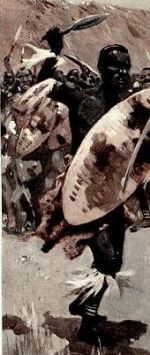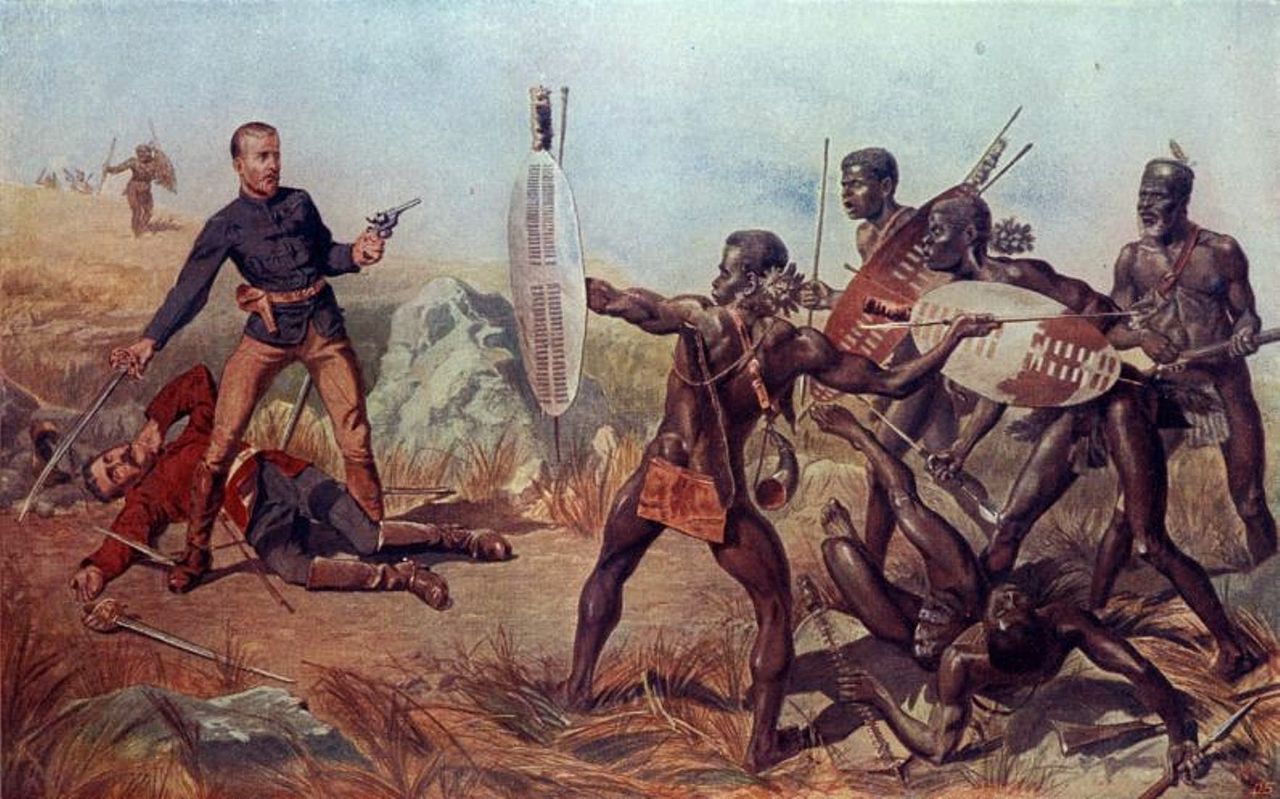Shaka Zulu and the rise of the Zulu Kingdom

(c) wikicommons
Shaka was the illegitimate son of the Zulu chief Senzangakona, and Nandi, a young girl of the Langeni clan. Rejected by his father’s clan, he was referred to as I-Shaka, “the parasite.” Nandi and her son lived in Senzangakona’s kraal until they were tossed out, when six-year-old Shaka allowed a dog to kill his father’s pet sheep. His father neglected both him and his mother, and Shaka was constantly ridiculed by the other boys of the clan. Nandi took her son and a younger daughter back to the Langeni, but they weren’t welcomed by her people. Some historians assume that enduring a series of humiliations as a child made Shaka into the Zulu warrior he became, infamous for his atrocities and cruelty. At the age of 23, Shaka joined the army of Dingiswayo, the Mtetwa king. During this period Shaka revolutionized the ancient techniques of warfare.
Shaka Zulu’s Weapons and Tactics

He developed the short assegai, a spear with a sword-like head, designed for close combat, and he converted the shield into an offensive weapon. But his major military innovation was the battle formation known as the “cow horns.” The main army engaged the opponent immediately, while the two outspread horns encircled the enemy, destroying its rear. Dingiswayo recognized Shaka’s ability as a leader, and envisioned him as a chieftain. Shaka succeeded Dingiswayo, and established an army of 50,000 well-trained warriors, expanding the clan into a kingdom. While Dingiswayo resorted to war after palaver failed – as most African chiefs did at that time – Shaka aimed to destroy the enemy. He replaced the chiefs he had overwhelmed and who were willing to submit into his kingdom, he later replaced with members of his family. His monarchy was based on fear. The cruelty of his actions, not only against his enemies, but also against his followers and his family, became legend. Within ten years, Shaka was building a single nation out of hundreds of tribes. The nation spoke a single Zulu language. Shaka expanded a chiefdom of 100 square miles into the Zulu empire, which extended over 200,000 square miles. But in 1828, Shaka was assassinated by his half-brothers, with the aid of the man who would become his successor, Dingane. He was unceremoniously buried in a pit. Soon after, though, a monument of Shaka was installed near the pit. To this day, Shaka’s life and accomplishments are still proudly celebrated by the Zulu people.



